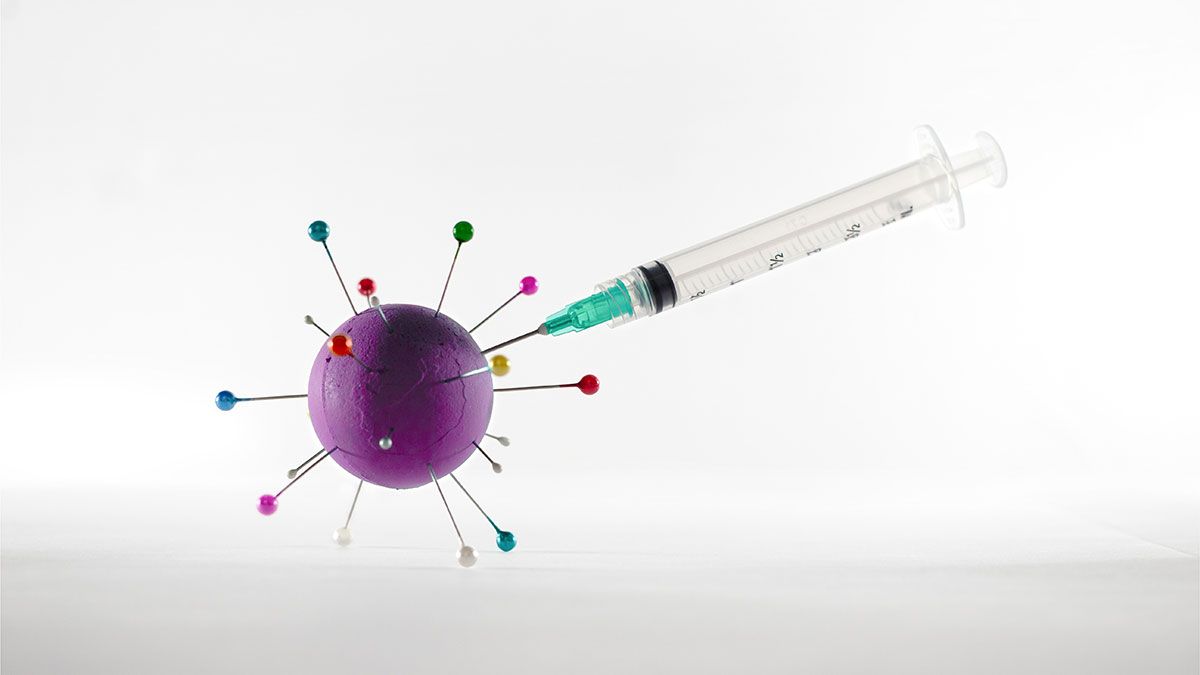A pastoral update on our COVID-19 response

Dear Siblings in Christ,
We are making progress, but we are not quite there yet. It has been over a year since the COVID-19 pandemic disrupted life as we knew it. We continue to persevere, exhausted at times, yet anticipating the day when we can gather, greet each other, share communion and other precious rhythms of life and spiritual practice in person without risking harm to one another. Hopeful also that we now carry with us new learnings and practices, hard lessons of necessity that will continue to connect us in new ways in life and ministry.
The rapid vaccine rollout gives us hope that we can enjoy more freedom to gather as families and faith communities soon. Vaccinations coupled with continuous strict adherence to safety protocols are expected to lower infection rates, hospitalizations and COVID-19 related deaths. Overall, we have seen the number of cases decline since the winter peak in many places, but progress has been stalled by premature re-openings, the easing of restrictions in some places, resistance by some to being vaccinated and observing simple safety practices: washing hands, social distancing, wearing a mask. I hope that each of us is continuing to follow these practices, as well as being vaccinated, consistent with medical advice, as soon as we are eligible.
I was surprised by the deep joy that welled up in me when those shots went in my arm, protecting not only me but also everyone I encounter from the dangers of this virus. I’m grateful to every person who is able and willing to join this movement toward health and safety.
As Dr. Rochelle Walensky, director of the Centers for Disease Control and Prevention (CDC), reminded us in a briefing earlier this year,
“We may be done with the virus, but clearly the virus is not done with us. We cannot get comfortable or give in to a false sense of security that the worst of the pandemic is behind us – not now; not when mass vaccination is so very close.”
Permissible not Necessarily Beneficial
In an article for The Atlantic, Dr. James Hamblin of the Yale School of Public Health points out,
“Our social lives can resume, but only when the whole community is ready. The turning point does not arrive for individuals, one by one, as soon as they’ve been vaccinated; it comes for all of us at once, when a population becomes immune.”
With this understanding, we are advised that the number of coronavirus cases needs to decrease further before we resume regular activities, especially in light of the arrival of new fast-spreading variants of the virus. A premature reopening, even if allowed by the state, may run the risk of not just stalling but even reversing the recent progress we have already achieved.
I am reminded of Saint Paul’s admonition that things that are “permissible” are not necessarily things that are “beneficial” to the common good. (I Corinthians 10:23).
While we should celebrate the good news of vaccines providing a layer of protection already for a significant number of members in some of our congregations, the church does not belong solely to those who are vaccinated. Especially as we have just now reached a time when all adults are eligible to receive a vaccine, we must continue to be patient to allow them the privilege of receiving this gift of security before we consider letting our guard down. At the same time, we will need to find ways to protect and include children in church life while continuing to wait for vaccination eligibility to be extended to them.
As the church, God calls us always to do things that are beneficial because we bear responsibility towards the well-being of others, especially the most vulnerable among us.
A Posture of Hopeful Caution
The progress we see in vaccinations, tempered by the potential threat of variants we race, leads me toward a posture of hopeful caution; we are almost there but not quite there yet. Even as our hope is renewed with the increasing percentage of those vaccinated, our decisions and actions must continue to manifest the utmost concern for one another as an act of love in response to Jesus’ command for us to love one another as he had loved us (John 13:34).
Accordingly, I am asking churches to remain vigilant in their planning and decision-making processes. The COVID-19 Response Team, made up of lay and clergy members from across the area, is continuing to review and amend its guidance to local churches. By May 5th, we will release updated guidelines for Phase 3, shifting more responsibility to local leaders to guide their congregation’s, camp’s or other ministry setting’s COVID-19 response.
I am grateful for each of you and your faithfulness and commitment, especially during this long time of physical separation due to this pandemic. May the hard lessons learned as we have persevered, and new skills developed as you have adapted, empower our work together and witness to God’s love which never fails us.
“Those who wait for the LORD shall renew their strength.” (Isaiah 40:31)
With love and grace,

Elaine JW Stanovsky
Bishop, Greater Northwest Episcopal Area
Offered in consultation with the COVID-19 Response Team, as currently composed:
- Rev. Alyssa Baker, pastor, Open Door Churches of Salem-Keizer, OR-ID Conference
- Laurie Day, OR-ID Conference Director of Connectional Ministries
- Rev. Jim Doepken, pastor, Moose Pass & Seward Memorial UMCs, Alaska Conference
- Rev. Mark Galang, Puget Sound District Superintendent, PNW Conference
- Rhondalei Gabuat, Executive Assistant for Bishop Stanovsky Greater Northwest Episcopal Area
- Rev. Karen Hernandez, Sage District Superintendent, OR-ID Conference
- Rev. Pat Longstroth, pastor, Bremerton UMC, PNW Conference
- Becky Platt, lay member, Boise (ID): Whitney UMC, OR-ID Conference
- Patrick Scriven, PNW Conference Director of Communications
- Jim Truitt, lay member, Renton (WA): Fairwood Community UMC, PNW Conference